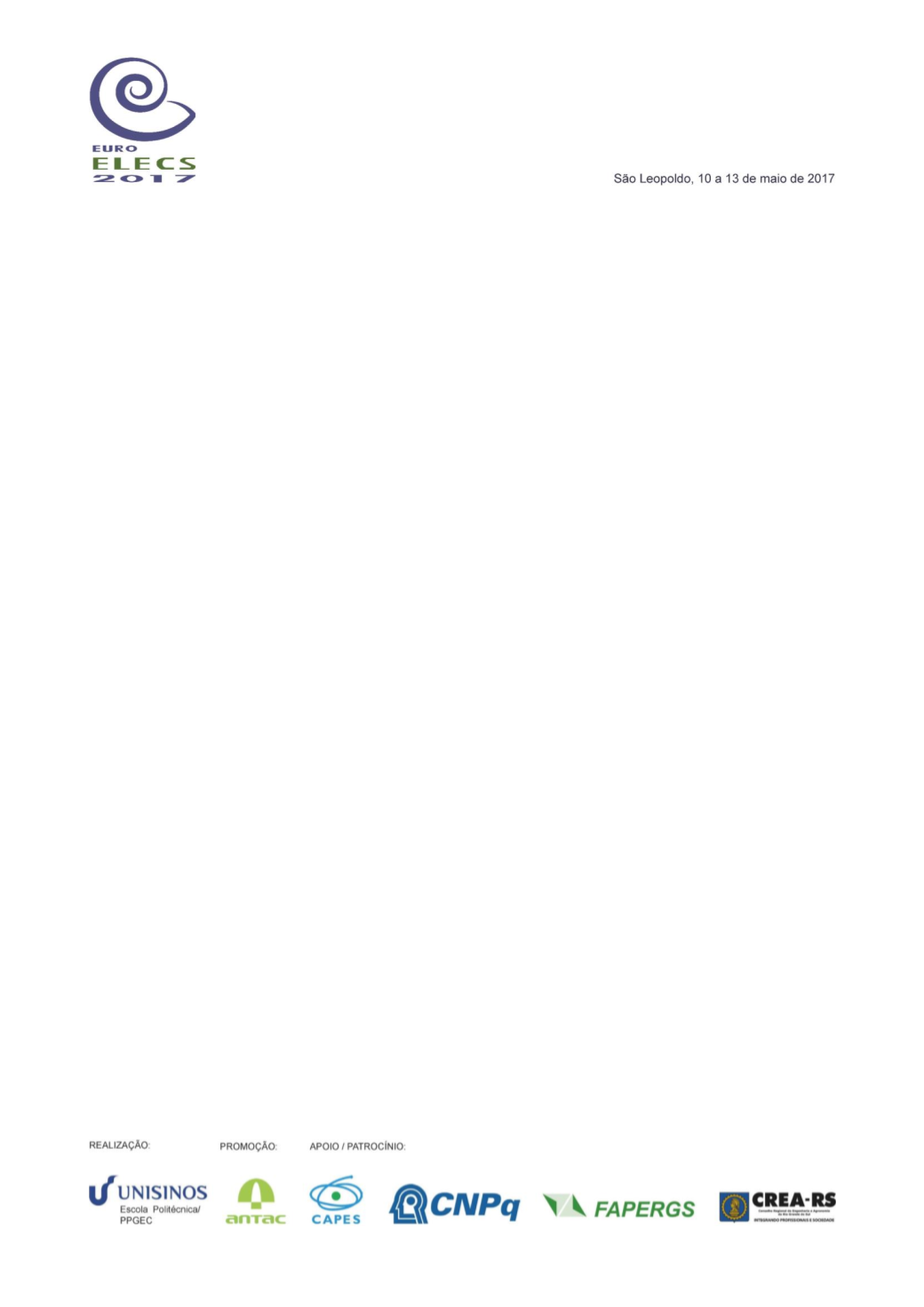

854
STUDY OF ENERGY TAKE OF MUNICIPAL SOLID WASTE OF PORTO
ALEGRE CITY WITH EMPHASIS ON INCINERATION AS
ENVIRONMENTAL MANAGEMENT TOOL
ABSTRACT
The issue of the generation of Municipal Solid Waste (MSW) is a subject of extreme importance,
since it is observed that the generation of waste has shown a disproportionate growth and higher
than the population growth in Brazil, whereas the spaces available for the installation of new Landfills
become scarcer. In many Brazilian municipalities, MSW are disposed in dumps and landfills without
proper control, presenting a risk to the environment. Following the guidelines of the National Policies
on Solid Waste and Basic Sanitation, municipalities and states have the responsibility of formulating
their solid waste management plans in their territories, as well as ensuring their proper operation.
This case study aimed to analyze the potential of energy use of urban solid waste, with emphasis
on incineration, as an environmental management tool, for the city of Porto Alegre. The methodology
used was based on data obtained according to the literature and adapted to the current situations of
the municipality. Through the characterization of the residues, it was possible to verify the viability of
the incineration, using the lower calorific value. Thus, it was estimated for the waste, the energy that
can be generated based on average potential energy-generating values through incineration. As a
consequence of these results, it was possible to evaluate the energy generated and the
environmental contribution that would return to the municipality. It was verified that Porto Alegre has
a good system of regular and selective collection, and the residues are currently sent to landfills. As
a result of this study, it was possible to consider incineration as an environmental management tool,
inserted in the municipal waste management plan. It was concluded that the incineration would be a
viable practice for the municipality, given the decrease in the final volume of MSW and the electric
energy that can be generated.
Keywords:
Municipal Solid Waste; Energy Use; Incineration; Energy; Environmental Management.
1. INTRODUÇÃO
A geração de resíduos sólidos urbanos (RSU) cresce anualmente, preocupando as administrações
públicas em todo o mundo. Observa-se que, no município de Porto Alegre, a população cresceu
0,22%, entre 2010 e 2011, chegando ao total de 1.413.094 habitantes (IBGE, 2011). Em
contrapartida, a geração de RSU cresceu 4,3 %, atingindo o volume de 1.635,50 t/dia, para o mesmo
período, segundo a Associação Brasileira de Empresas de Limpeza Pública e Resíduos Especiais
(ABRELPE, 2010; 2011).
A gestão das políticas nacionais de saneamento básico e resíduos sólidos é atribuída, pelo governo
federal, aos municípios (Lei 11.445/07; Lei 12.305/10). Sendo assim, cabe aos mesmos a
responsabilidade direta de gerenciar e destinar corretamente os resíduos gerados, por meio de
políticas e mecanismos de gestão eficientes. De acordo com o IBGE (2008), a destinação final dos
RSU é disposta em 50,8 % nos vazadouros a céu aberto (lixões), 22,5 % em aterros controlados e
27,7 % em aterros sanitários.
A geração dos RSU tende a aumentar e a preocupar a população, à medida em que cresce o
consumo. Além disso, verifica-se o aumento populacional e o desenvolvimento tecnológico de
produtos com preços mais acessíveis e com menor vida útil. O diagnóstico da ABRELPE (2010;
2011) mostra que a coleta dos RSU não consegue acompanhar a evolução da geração dos
mesmos, o que acarreta no não recolhimento de toneladas diárias de resíduos. Estes fatos estão


















